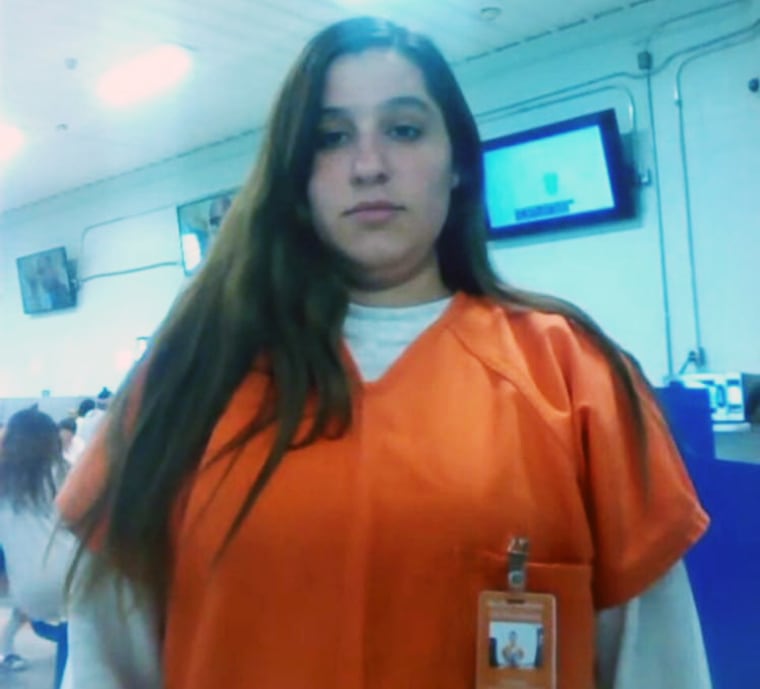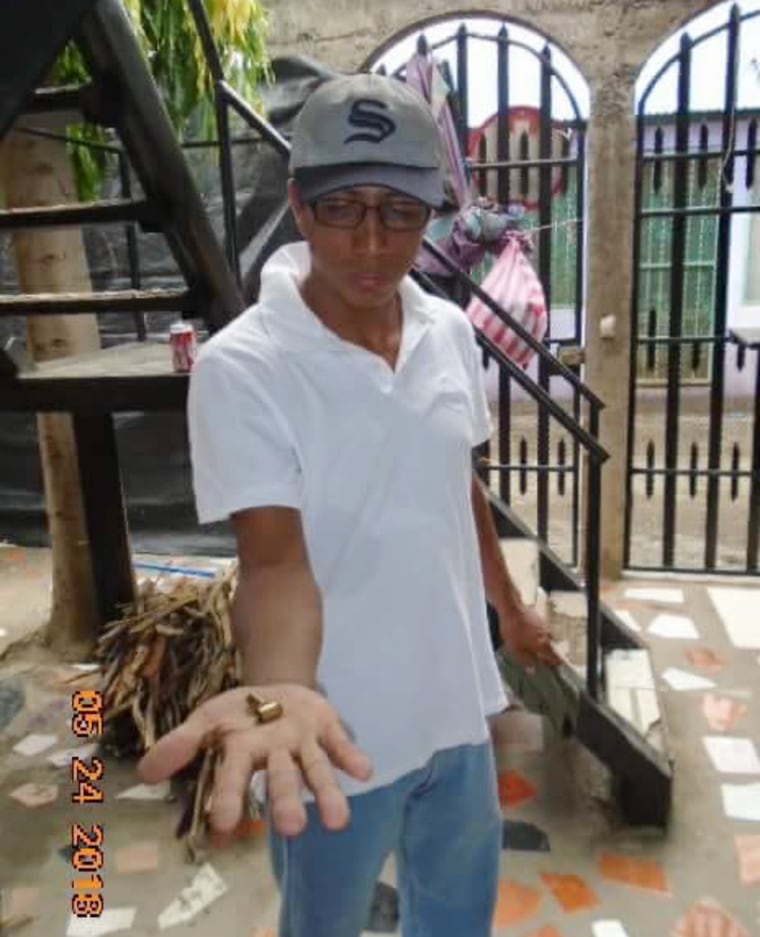MIAMI — After spending nearly a week in isolation at a Louisiana detention center in March with the flu, Karina Serrano Rodríguez says she's “terrified” of becoming infected with the coronavirus.
Serrano Rodríguez, 27, says she fled persecution in Cuba for running a clandestine business to distribute news and information. She's been at the South Louisiana Detention Center, in Evangeline Parish, for seven months, even though she passed the initial screening required to start the asylum process and has relatives in Tampa waiting to take her in.
“I feel I have reached a point of collapse. I don’t sleep and I’m depressed,” Serrano Rodríguez said by telephone, adding she's worried about "the day there is a COVID-19 case here."
Serrano Rodríguez is one of thousands of asylum-seekers who have passed an initial screening yet remain in custody for months and even years, despite having U.S. relatives waiting to take them in until their asylum case is heard before a judge.

The Southern Poverty Law Center and the American Civil Liberties Union asked a federal judge on Tuesday to hold Immigrations and Customs Enforcement in contempt for violating a court order from September that said the Department of Homeland Security and ICE were in violation of their own policy of granting parole to asylum-seekers.
“It’s egregious they have had seven months to comply with the order, yet they are still denying parole at such a high rate given the COVID-19 pandemic,” said Mich Gonzalez, a staff attorney with the law center in Miami.
The motion stems from a class-action lawsuit filed last May, against the Department of Homeland Security and the New Orleans ICE Field Office — a five-state area — stating they have a “blanket parole denial” policy.
A binding 2009 policy directs ICE to grant parole to asylum-seekers who have lawfully presented themselves at an official port of entry, passed a credible-fear screening, and do not pose a public safety threat.
Before President Donald Trump took office, ICE would routinely release most asylum-seekers on parole. Civil rights groups have been legally challenging the Trump administration for keeping asylum-seekers in detention while they wait for a judge to decide their claim, saying it's harder for detainees to prepare for an asylum hearing when they're detained, often without legal resources. The hearings are conducted via teleconference with judges, and are scattered throughout the U.S. and Puerto Rico.
With the coronavirus pandemic, the situation has taken special urgency, the law center and others point out.
Two guards at an immigration detention center in Louisiana died after contracting the coronavirus, raising questions about whether detainees and workers are sufficiently protected.
In a statement, Bryan Cox, the agency's public affairs director for the southern region, said that “ICE has taken extensive actions to stem the potential spread of COVID-19, which includes a case-by-case, totality of the circumstances [and] custody determination for all persons, which is always done."
Although ICE does not have a breakdown of how many people have been tested in the New Orleans district, they have tested 1,686 detainees for COVID-19, with 869 testing positive, according to their latest figures.
Gonzalez said around 500 immigrant detainees or their families have contacted the law center's hotline to acquire more information on the lawsuit and seek assistance. Although they come from several countries, including Venezuela and Nicaragua, the vast majority are from Cuba and have sponsors in Florida.
The three groups make up the fastest-growing segments of the immigration backlog, according to Syracuse University's Transactional Records Access Clearinghouse, with those from Cuba seeing the highest increase, at 374 percent.
For many Cubans, detention comes as a surprise, after spending decades being automatically paroled.
“The families tell me they don’t understand why this is happening," Gonzalez said. "I have to explain it over and over again."
The number of asylum-seekers in Louisiana has grown after the state cut the number of state inmates in its prisons by enacting sweeping criminal justice overhaul measures. In its place, more local for-profit prisons set up contracts with ICE to house immigrant detainees.
Although the number of parole approvals from those seeking asylum has fallen sharply nationwide, the Southern Poverty Law Center says the approval rate for those detained in the New Orleans field district is particularly low, plummeting from 75 percent in 2016 to 1.5 percent in 2018.
“It’s not a coincidence that this region has the worst rates of release on parole in the country," said Gonzalez. In a statement, ICE said that the detained population in the New Orleans field district has decreased from 6,120 at the end of March to around 5,200 people now. The population is now 40 percent less than the average daily population for fiscal year 2020 of approximately 8,500.
Gonzalez countered that 5,200 is still twice what ICE had in fiscal year 2019 before the surge last summer.
In the case of Serrano Rodríguez, the Cuban asylum-seeker, she and her husband fled to the U.S. together, but he was released on parole after less than two months of detention in Texas, while she's still being held in Louisiana.
Erlinda Liens Reyes, 42, another asylum-seeker from Cuba, has been in detention at the South Louisiana Detention Facility for nine months after being transferred from Texas. Like Serrano Rodríguez, Liens Reyes' husband was paroled in Texas.
In a phone interview, Liens, who has high blood pressure, said she fears getting infected with the coronavirus. When workers at the facility speak to her, she tries to keep a safe distance. But the close sleeping and eating quarters worry her.
"I tried to do things the right way,” Liens said tearfully about her situation, saying she didn't try to illegally cross the border and presented herself to authorities. Liens’ sister-in-law and sponsor, who lives in West Palm Beach, Florida, is waiting to take her in.
One Nicaraguan American family in Miami feared for their relatives in ICE detention, but they received good news last week.

Tirsa Castill told NBC News that her cousin, Alberto Rojas, will soon be paroled after 14 months in the LaSalle ICE Processing Center in Louisiana. Rojas and his uncle had taken part in antigovernment protests that rocked the Central American country in April 2018, leaving to over 300 dead, Castillo said.
After the protests, pro-government security forces searched for Rojas and his uncle, she said, and Rojas was beaten and his uncle shot in the arm and genitals. The two men fled Nicaragua and headed for Mexico, where they were kidnapped and held for ransom, Castillo said. Eventually they presented themselves at the border requesting asylum. While Rojas’ uncle was released on parole after several months, Rojas was kept in detention, worrying the family since he has only one functioning kidney, his cousin said.
“He’s a good, decent person with principles,” Castillo said. With the coronavirus, the family was "super worried" — until the recent news of his release.
Follow NBC Latino on Facebook, Twitter and Instagram.

